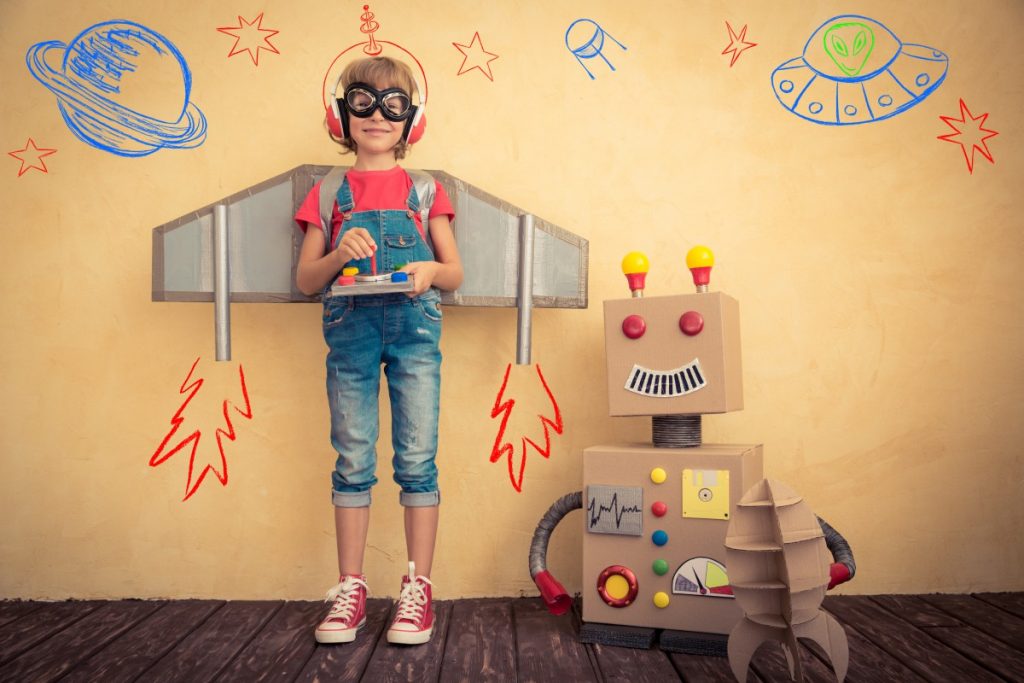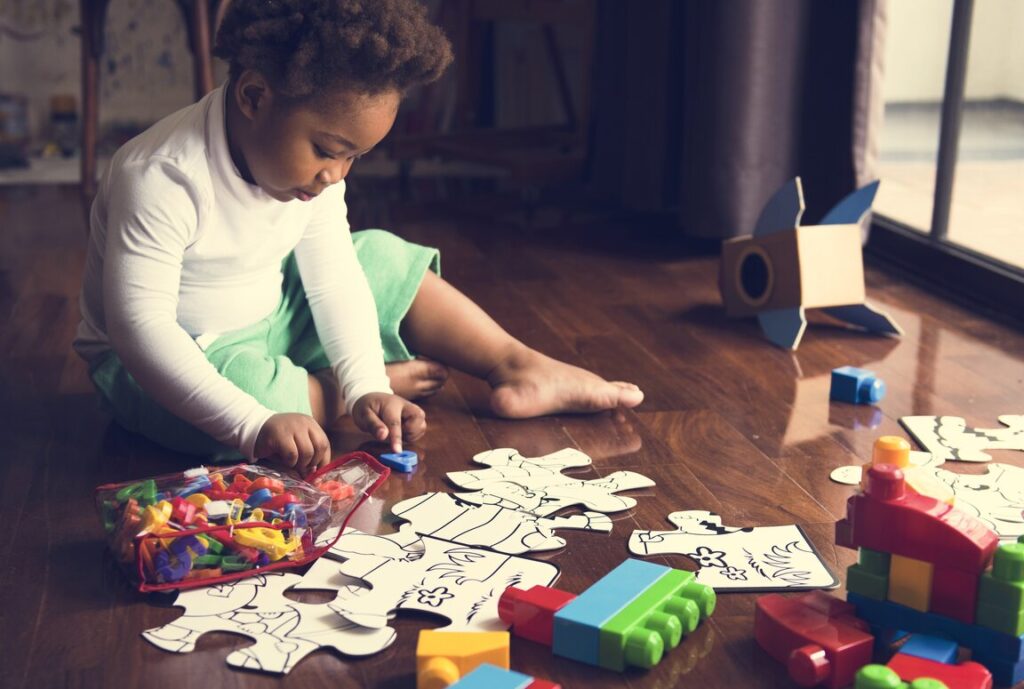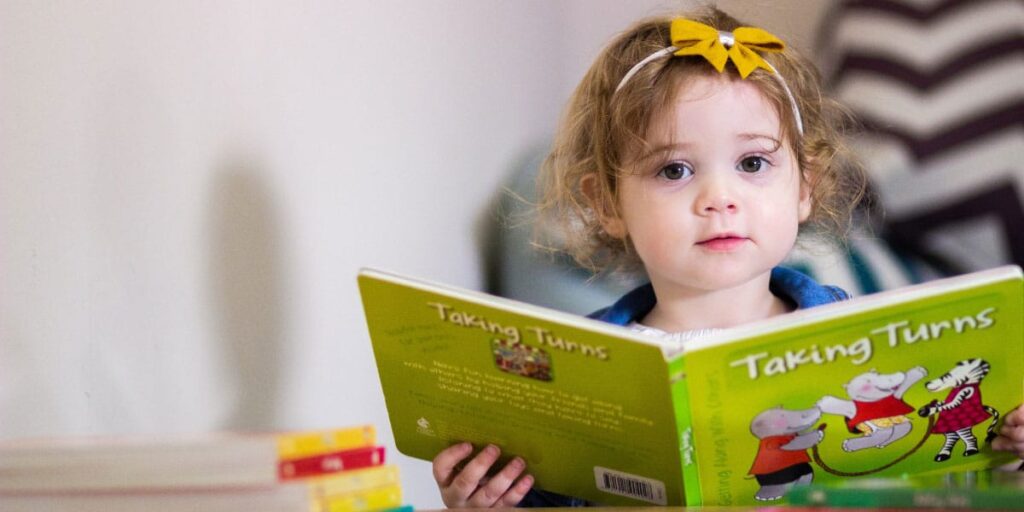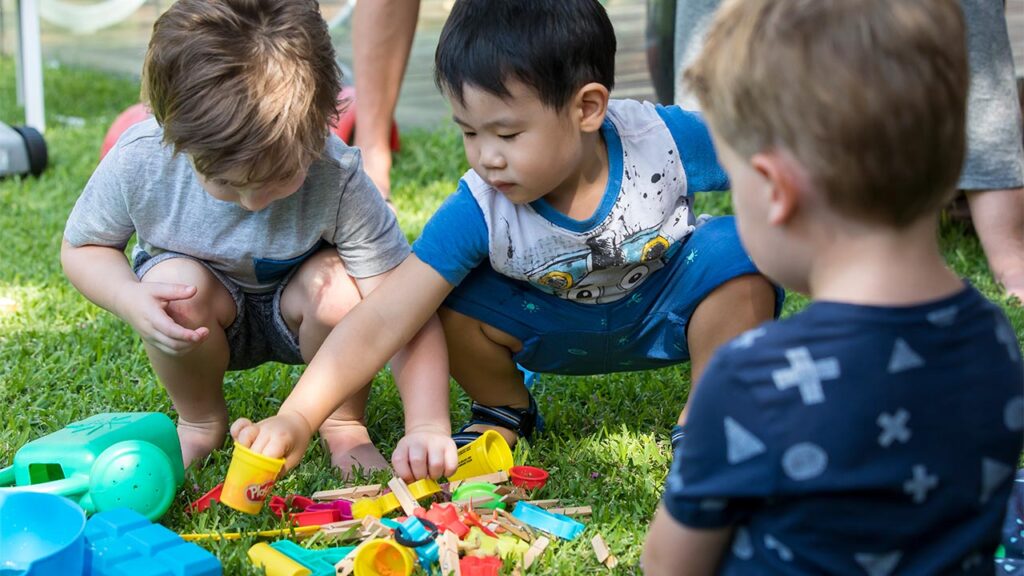In today’s highly competitive world, education often dominates parents’ priorities for their children’s lives. Whether it’s foreign language learning, programming, or other subjects, parents strive to provide their children with the necessary scientific requirements of our age at an early stage of their lives.
Amidst this emphasis on equipping children with essential knowledge, play may appear to be a secondary or insignificant matter. However, the reality is quite the opposite. Play is not merely a break from learning; it is, in fact, the essence of learning itself. Through play, children explore the world around them, develop fundamental skills, and form connections that shape their understanding of themselves and others.
In this article, we delve into the pivotal role of play in the cognitive, physical, emotional, and social development of children, exploring how play is an integral part of their growth.
1. Developing Creativity and Imagination

Undoubtedly, play is a fundamental and integral aspect of children’s development, given its pivotal role in shaping their imagination. Whether engaged in make-believe scenarios at home, assuming the roles of superheroes, or participating in imaginative adventures, children employ their imagination to infuse vitality into these situations. Through the invention of stories, characters, and places, children enhance their imaginative abilities and significantly expand the boundaries of their creativity.
In addition to fostering imagination, play often entails overcoming challenges and necessitates critical thinking. Whether constructing objects with building blocks, solving puzzles, or engaging in other activities, children participate in a simplified process of analytical thinking and problem-solving. Through continuous engagement in such cognitive processes over time, children experience a substantial boost in creativity as they explore various approaches, encounter new ideas, and devise innovative solutions.
Furthermore, activities like drawing and coloring provide children with significant opportunities to develop their artistic talents. By allowing children to explore diverse materials and colors and utilize them to transform their imaginative visions into reality, these activities greatly stimulate their creativity.
In addition, it is important to acknowledge the crucial role of symbolic play, wherein children imagine one object as another. For instance, a child may employ a household item as a steering wheel for a car and envision themselves navigating obstacles at high speed. This form of play not only contributes to a child’s cognitive development but also enhances the creative mindset necessary for future learning.
2. Promoting Cognitive Development

Various types of games, such as memory games and puzzles, rely on memory and concentration for successful completion. Engaging in such games necessitates children’s ability to remember shapes, rules, and patterns, while also maintaining focus on intricate details. Research indicates that repeated participation in these games, or engaging in activities that involve brainstorming, strengthens the prefrontal cortex of the brain, resulting in improved memory and increased attention span.
Furthermore, certain games involve a continuous process of mathematical and logical thinking. These activities may include sorting objects based on size, shape, or color, counting, classifying, performing simple arithmetic operations, or devising strategic plans during gameplay. Such forms of play contribute to the enhancement of logical thinking skills, as children learn to analyze cause and effect and make predictions accordingly.
As play involves both physical and mental activity, it aids in the development of sensory-motor skills in children, establishing strong connections and communication between the brain and the body. Additionally, action-based games that require coordination between thinking and movement gradually enable children to acquire motor control skills, while simultaneously enhancing their spatial awareness.
3. Behavioral and Emotional Benefits

Similar to the role of a teacher, play significantly contributes to shaping children’s behavior, personalities, and emotions. Depending on the level of difficulty, play offers children the opportunity to confront obstacles, setbacks, and losses, ultimately fostering the development of emotional resilience. By experiencing a cycle of both wins and losses, children learn to adapt and cultivate a natural ability to bounce back from loss, which has a profound impact on their emotional control in the future.
Furthermore, interaction amongst children during group games enhances their social and personal skills. Through play, children learn important social dynamics such as sharing, negotiation, conflict resolution, cooperation, and the ability to respect others’ perspectives. These skills empower children to navigate various social situations effectively. Conversely, children who are excessively sheltered by overprotective parents and isolated from others may struggle with social skills and encounter difficulties in their interactions with others.
In addition, play fosters children’s self-confidence and self-respect. As they engage in play, children try different ideas and strategies to find suitable solutions. When these ideas lead to successful completion of the game, children experience a sense of accomplishment and pride in themselves. Over time, these small but consecutive victories contribute to the development of a positive self-image which will stay for the rest of their lives!
4. Improving Literacy

Proficiency in the local language can be regarded as one of, if not the most, crucial skill parents aspire for their children to acquire. It is at this point, another benefit of play emerges. By incorporating language-related activities, such as reading and writing stories, into game design, children’s language skills can be significantly enhanced. This includes improved letter recognition, expanded vocabulary, and a heightened understanding of the relationship between sounds and written words.
Furthermore, when reading and writing are integrated into play, children develop a positive association with these activities, potentially fostering a lifelong habit of engaging in them.
Additionally, play necessitates comprehension of game instructions in order to progress successfully through the stages. Consequently, children develop stronger language comprehension skills and a heightened aptitude for understanding verbal cues and following instructions.
Actually that’s why many foreign language learning applications are based on mixing learning with play, which helps the child learn the language faster and more efficiently.
5. Developing Greater independence

Children often have limited authority when it comes to decision-making in their daily activities. Instead, they receive instructions and guidelines on what they should or should not do. However, within the realm of play, children wield ultimate authority to pursue their own desires and establish their own rules.
During play, children enjoy the freedom to make choices and decisions regarding their roles and preferences. This autonomy enables them to cultivate decision-making skills and learn how to take responsibility for their choices. In other words, through play, children acquire the ability to assess various options, consider potential consequences, and make decisions independently, fostering a sense of self-reliance.
Hence, the significance of solo play should not be underestimated in relation to group play with others. Engaging in solo play empowers children to feel more capable of tackling tasks, finding solutions on their own, and gauging the appropriateness of these solutions for themselves. And just like Albert Einstein said: “the monotony and solitude of a quiet life stimulates the creative mind.”
6. Enhancing Physical Fitness

Whether consciously or not, children’s bodies possess an innate inclination for movement and physical activity. In fact, without play that involves movement, children may encounter physical issues in later stages of their life. Conversely, children who engage in daily physical activities such as running or jumping experience enhanced bone and muscle development.
Furthermore, games that necessitate physical activity contribute to the development and refinement of children’s motor skills. This encompasses both gross motor skills, such as walking and running, and fine motor skills, such as manipulating objects, drawing, or constructing with building blocks.
Irrespective of a child’s abilities and interests, engaging in physical play can provide them with various benefits, including:
- Increased reaction speed.
- Enhanced control over movements.
- Improved gross motor skills.
- Attainment of better body balance.
- Development of strong muscles.
- Improved bone density.
- Enhanced cardiovascular function.
What’s truly remarkable is that children can attain all these advantages while simultaneously enjoying themselves and having fun!
In conclusion, play is much more than just a source of enjoyment for children; it is the cornerstone upon which their personality is built. As we have discovered in this article, play is not limited to entertainment; it is a crucial element in shaping a child’s worldview, enhancing their cognitive development, honing problem-solving skills, fostering creativity, and nurturing their sense of independence and social abilities.
By carefully selecting the types of play in which children engage, parents can provide them with fertile ground where the seeds of their future selves and personalities can take root. Therefore, it falls upon parents to recognize the importance of play and ensure that every child has the opportunity to participate in this fundamental experience in their lives.
Lastly, don’t forget to subscribe to our blog and share this article with family and friends to spread the benefits!
Reference: epl

